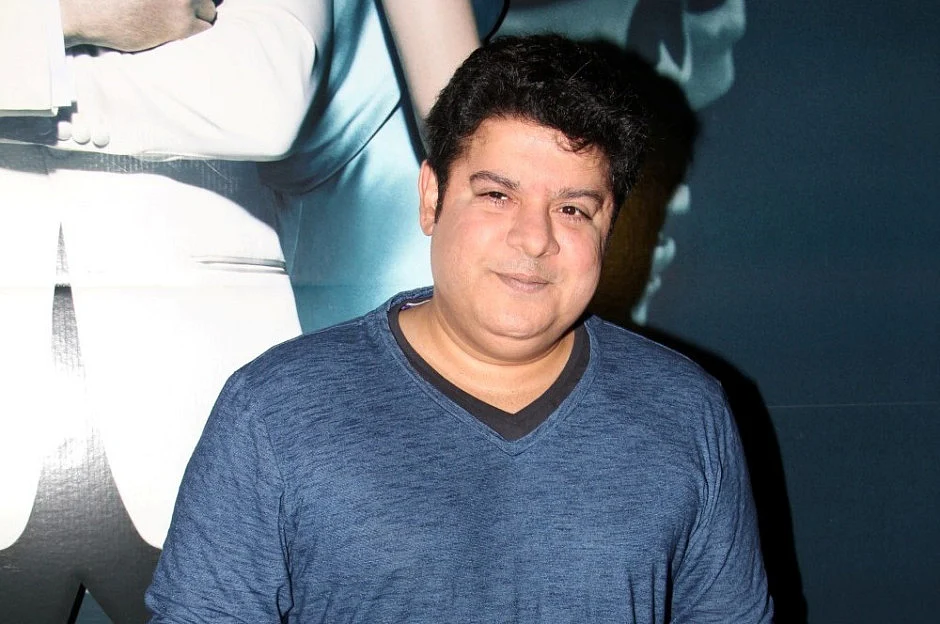How #MeToo accused Sajid Khan’s rehabilitation exposes Bollywood’s deep rot with sexual misconduct cases
Is Malayalam film industry doing slightly better in handling work place sexual harassment?

Dubai: What shocks me today is not that Bollywood filmmaker Sajid Khan has once again been accused of inappropriate sexual conduct — it’s how effortlessly this alleged serial offender, like many others before him, has been rehabilitated without accountability.
Earlier this week, Indian television actress Navina Bole, known for Ishqbaaaz and Miley Jab Hum Tum, came forward with fresh allegations against Sajid. She recounted a deeply uncomfortable encounter from the mid-2000s, where Khan allegedly asked her to "take off her clothes and sit in lingerie" during a professional meeting at his home. Bole said she managed to leave but was subjected to persistent calls afterward.
These allegations add to the already grim record Khan carries.
Back in 2018, when India's #MeToo movement was peaking, no fewer than eight women — aspiring actresses, assistants, and a journalist — accused him of sexual harassment, ranging from inappropriate comments to graphic misconduct.
Although Khan denied the allegations, he was suspended for a year by the Indian Film and Television Directors' Association and stepped down from directing Housefull 4.
Yet by October 1, 2022, Khan had made a full-fledged comeback. He entered the Bigg Boss 16 house — India's most popular reality show — during its season premiere, hosted by Bollywood superstar Salman Khan. He stayed on air for more than 100 days, voluntarily exiting in January 2023, citing "professional commitments."
The outrage here isn’t just about the fresh allegations against Sajid.
It’s about how a serial offender like him is being seemingly systematically rehabilitated without any accountability in Bollywood — and how that is somehow considered "normal."
Why is this okay? Where is the outrage from industry insiders who claim to champion change? Why are women who risked their careers and reputations to speak out treated as collateral damage?
And it’s not just Sajid Khan. National Award-winning director of Queen fame Vikas Bahl, accused of serious misconduct during the #MeToo wave, has returned to directing major films like Goodbye and Ganapath, barely missing a step.
Others too, quietly slip back into projects, as if the allegations never existed. Bollywood, it seems, has decided that the passage of time is sufficient penance — no apology, no public reckoning needed. Meanwhile, survivors continue to struggle.
One of Sajid Khan’s accusers had even posted a gut-wrenching Instagram story after his Bigg Boss appearance in Salman Khan-hosted show
"If you really give a [expletive], ask yourself why you're watching."
She added that if the industry truly cared, they would hire the survivors, not the men they exposed.
Contrast this with what is happening in Malayalam cinema. In my interview with acclaimed actress and activist Parvathy Thiruvothu, co-founder of the Women In Cinema Collective (WCC), she pointed out that at least some sense of fear and reflection has entered the Kerala film industry.
"There’s a realisation that people can no longer brush things under the carpet, and that realisation has created an environment of caution," while also acknowledging that a lot of work still needs to be done.
Following the release of the explosive Hema Committee findings earlier this year — which exposed rampant sexual harassment and misconduct in Kerala’s film industry — survivors began publicly naming their alleged abusers. The aftermath included the dissolution of film body AMMA’s leadership, including superstar Mohanlal's resignation, and the Kerala government's growing intent to tackle these issues legally.
Parvathy did not mince words when addressing the superficial gestures made by some in power. "Resigning at such an incredibly revelatory stage and behaving as if it’s a noble move fell really short," she said. She emphasised that the solution lies not in performative actions, but in true structural reform and tangible support for survivors.
Meanwhile, Bollywood seems determined to pretend that nothing happened. The industry appears more invested in rehabilitating accused men than in offering justice to the women who risked everything to speak up.
When someone like Sajid Khan, Farah Khan's brother, is handed a national platform without having to address credible allegations, it sends a devastating message to every woman in the industry — and beyond. Silence is complicity. Viewership is complicity.
The Malayalam film industry, though imperfect, is at least attempting to reckon with its issues. Bollywood, on the other hand, seems to believe that the status quo is just fine.
Bollywood must do better. India must do better. And we, as an audience, must demand better.
This situation isn’t just a blemish on Bollywood’s image — it’s a reflection of a deeper rot: a culture that shelters the powerful and isolates survivors.
When someone like Sajid Khan, director Farah Khan's sibling, is handed a national platform without having to address credible allegations, it sends a devastating message to every woman in the industry — and beyond. Silence is complicity. Viewership is complicity.
Bollywood must do better. And we, as an audience, must demand better.
Network Links
GN StoreDownload our app
© Al Nisr Publishing LLC 2026. All rights reserved.